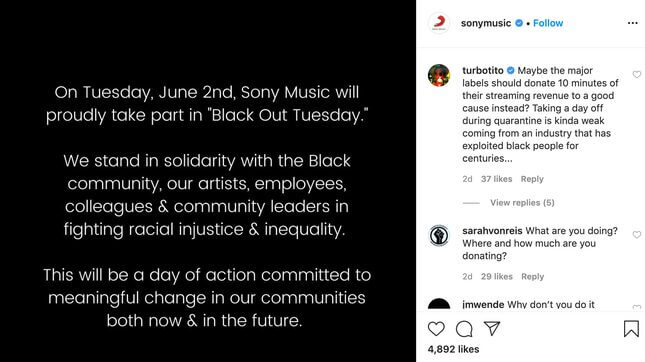

On Tuesday, the music industry coordinated a “Black Out” to stand in solidarity with the black community in response to protests following the murder of George Floyd. Major record labels and companies like Spotify and Live Nation jumped on board, calling vaguely for days of “action,” while others pledged to push back releases and make donations, the New York Times reported. But the effort was marred with confusion on behalf of artists and fans who wished for more specificity. And when the blackout image was co-opted by people outside the music industry—posted on Instagram with #blacklivesmatter hashtags—that solidarity transformed into suppression as important protest and aid information was pushed out of tag pages.
The Black Out had good intentions. It was an initiative spearheaded by two black women in the industry, Jamila Thomas and Brianna Agyemang, who created the hashtag #TheShowMustBePaused for a day that called for a productive conversation (not silence) about supporting the black community. It linked to bail funds and anti-racism resources and was clear in its intentions: this was a day for the music industry to answer for how it profits off of black people. “It is the obligation of these entities to protect and empower the Black communities that have made them disproportionately wealthy in ways that are measurable and transparent,” they wrote.
-

-

-

-

-

-

-

-

-

-

-

-

-

-

-

-

-

-

-

-

-

-

-

-

-

-

-

-

-

-

-

-

-

-

-

-

-

-

-

-








































